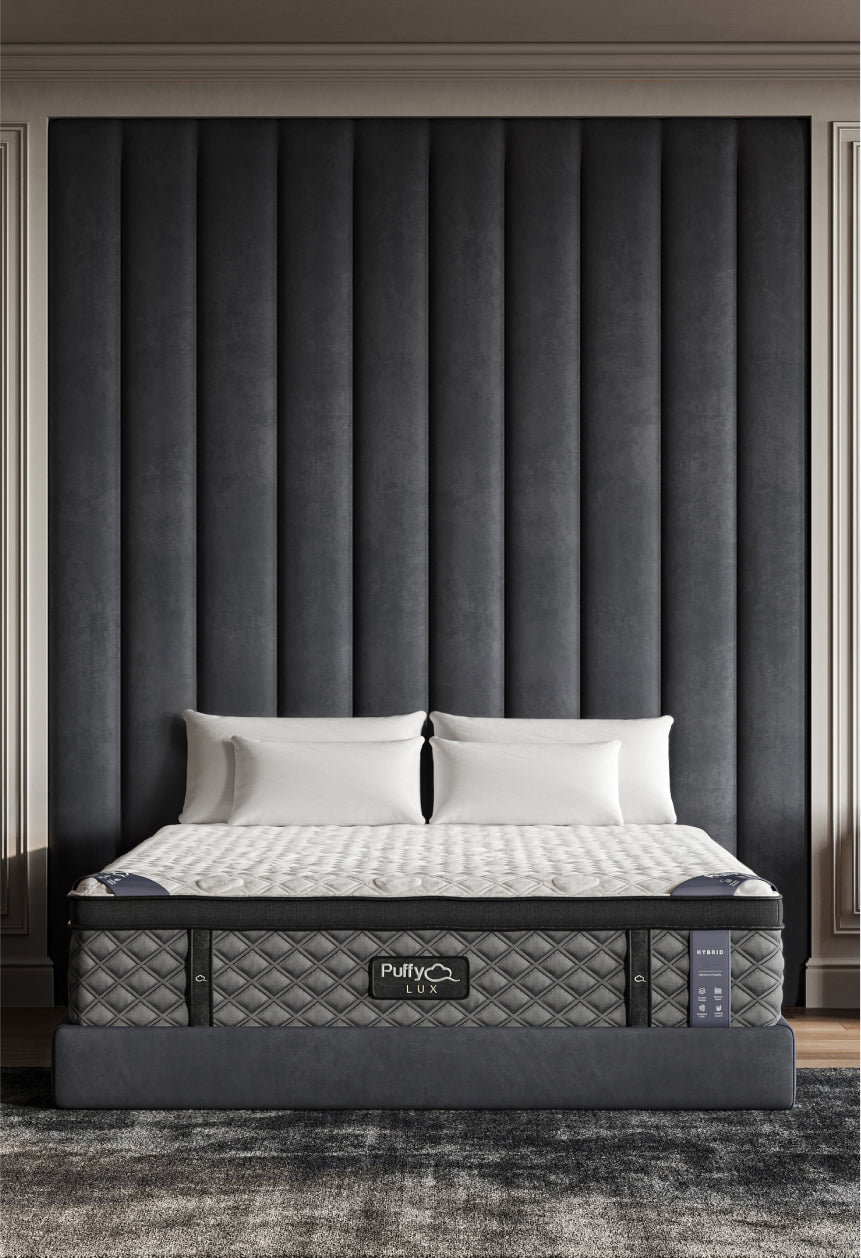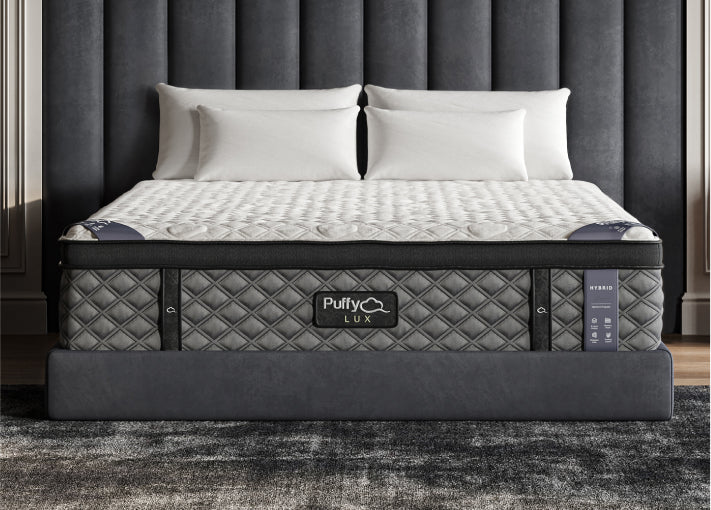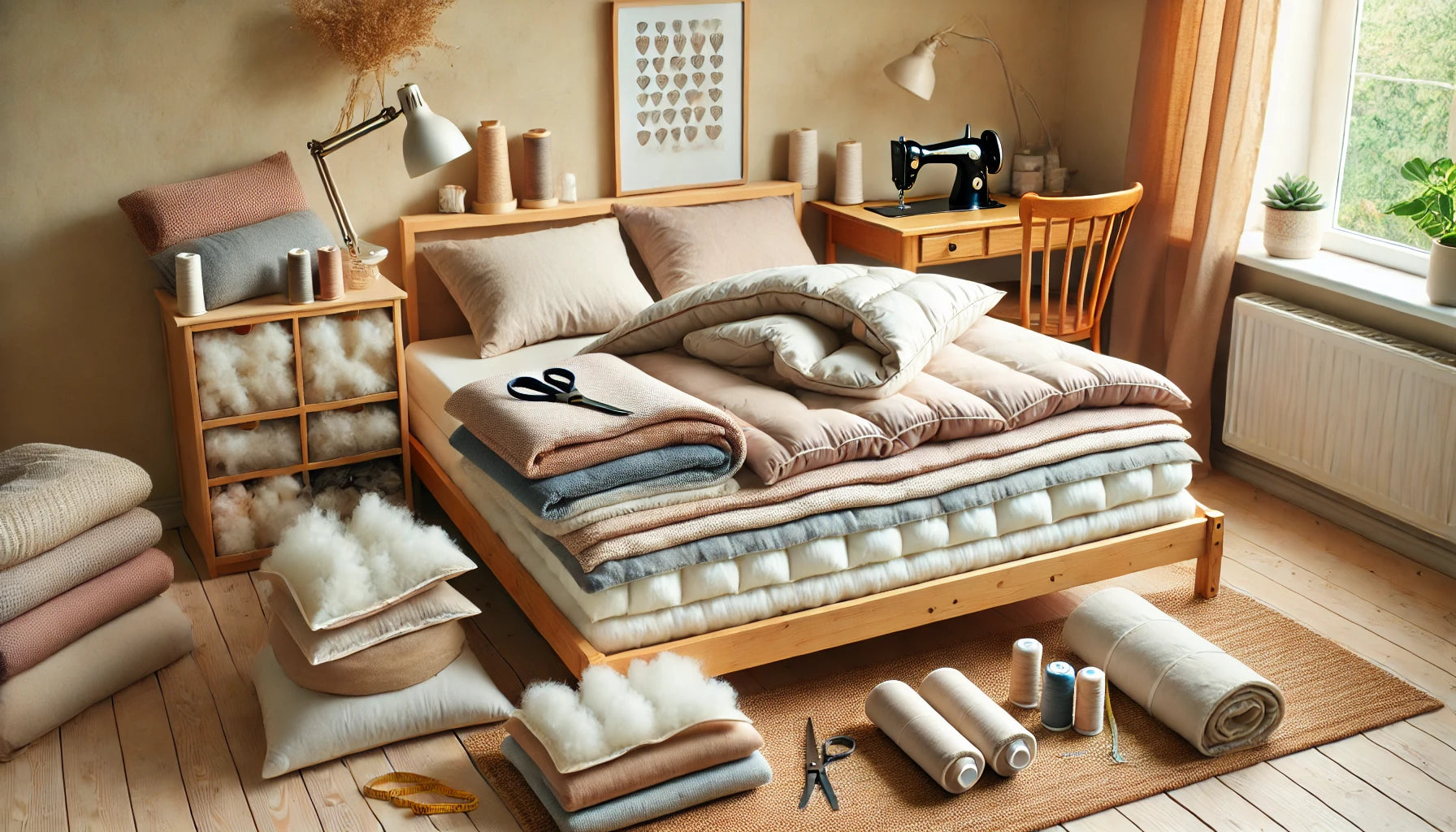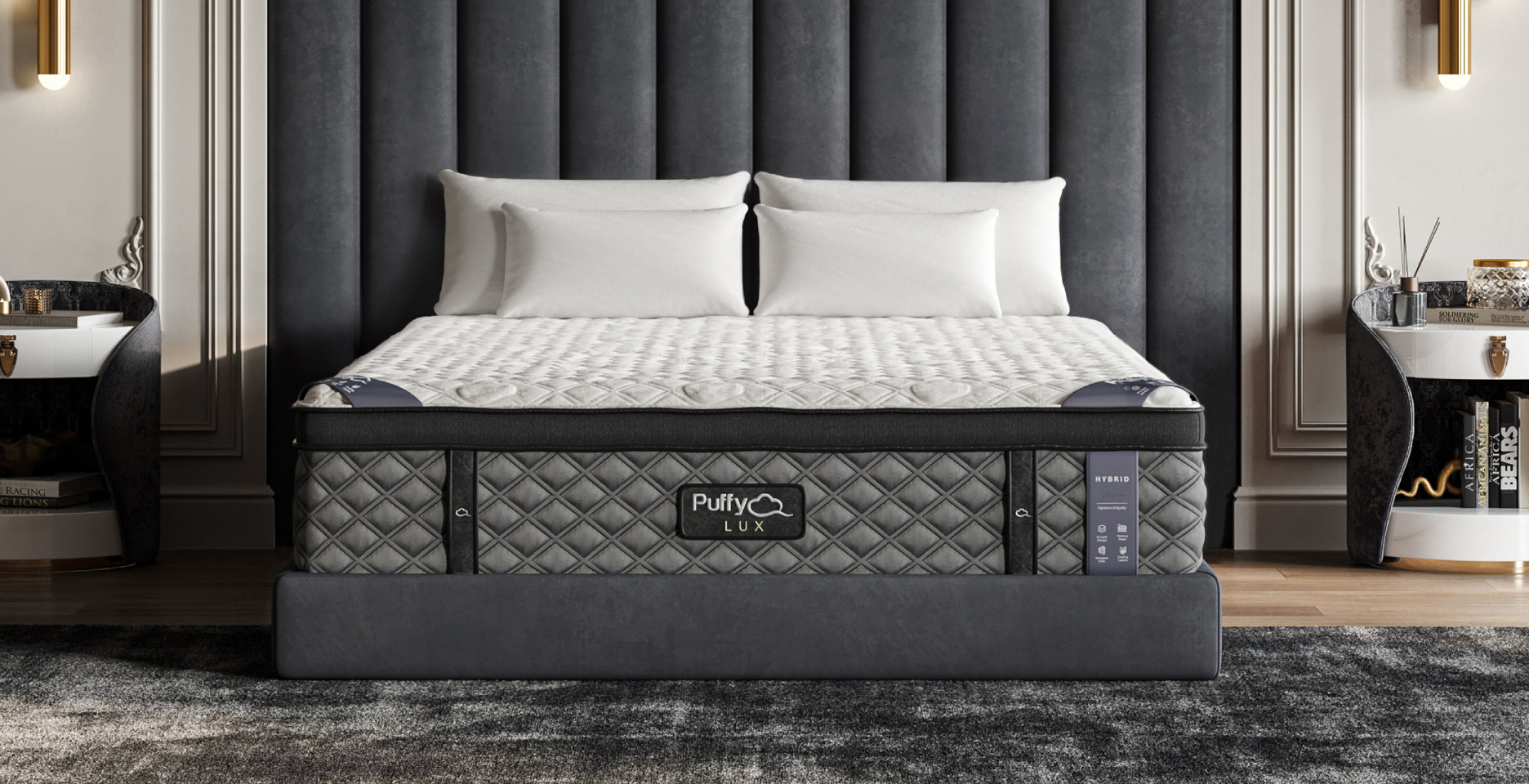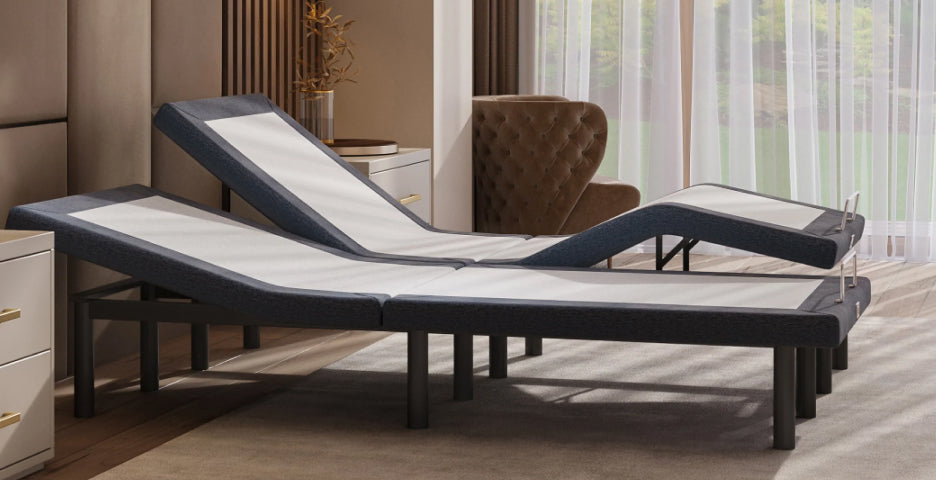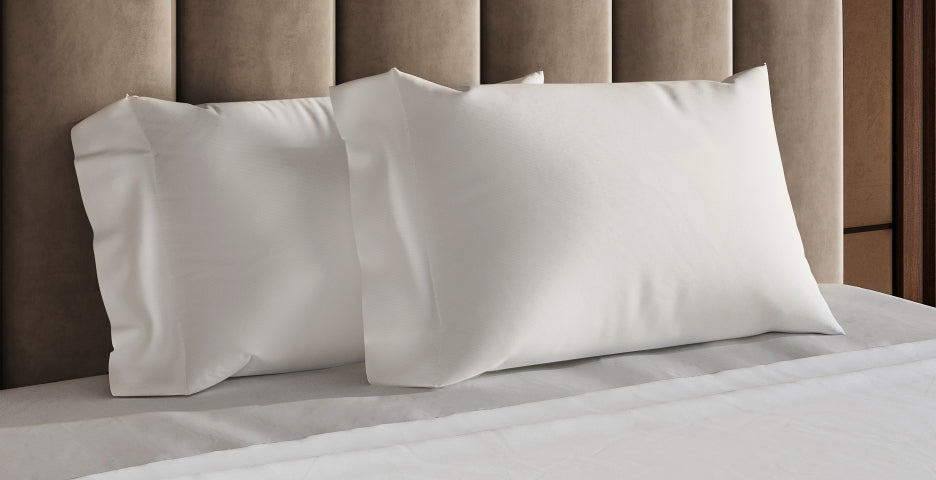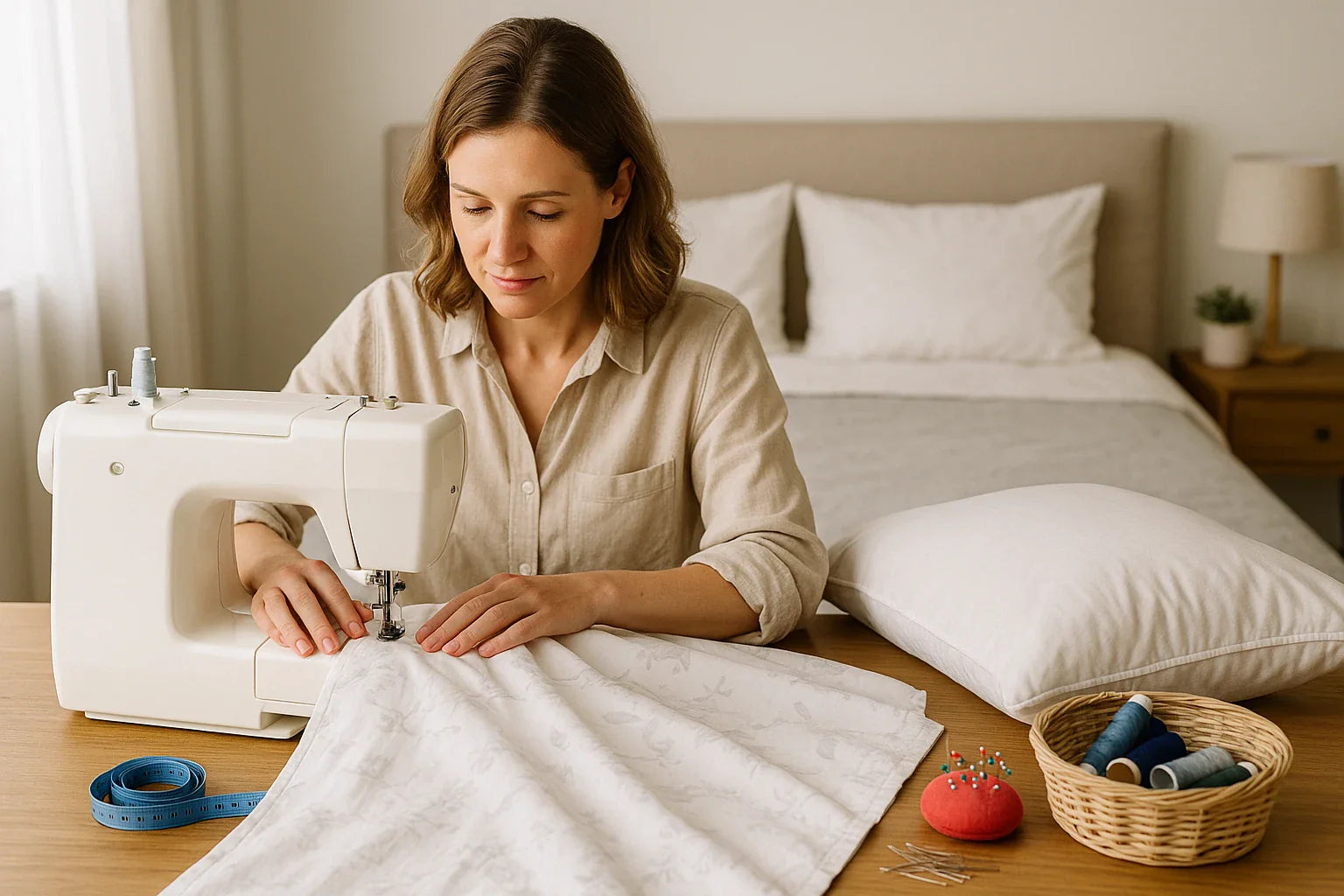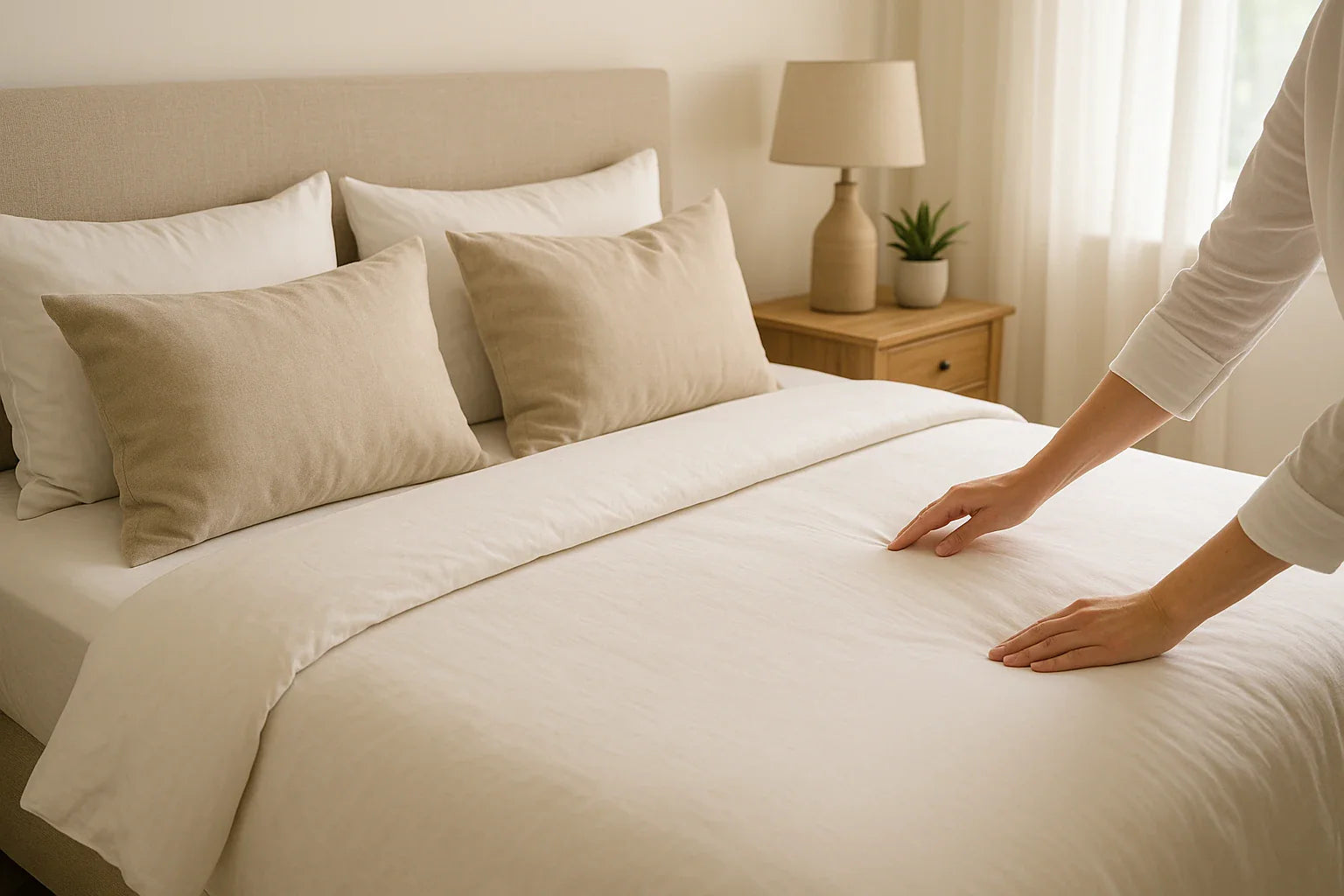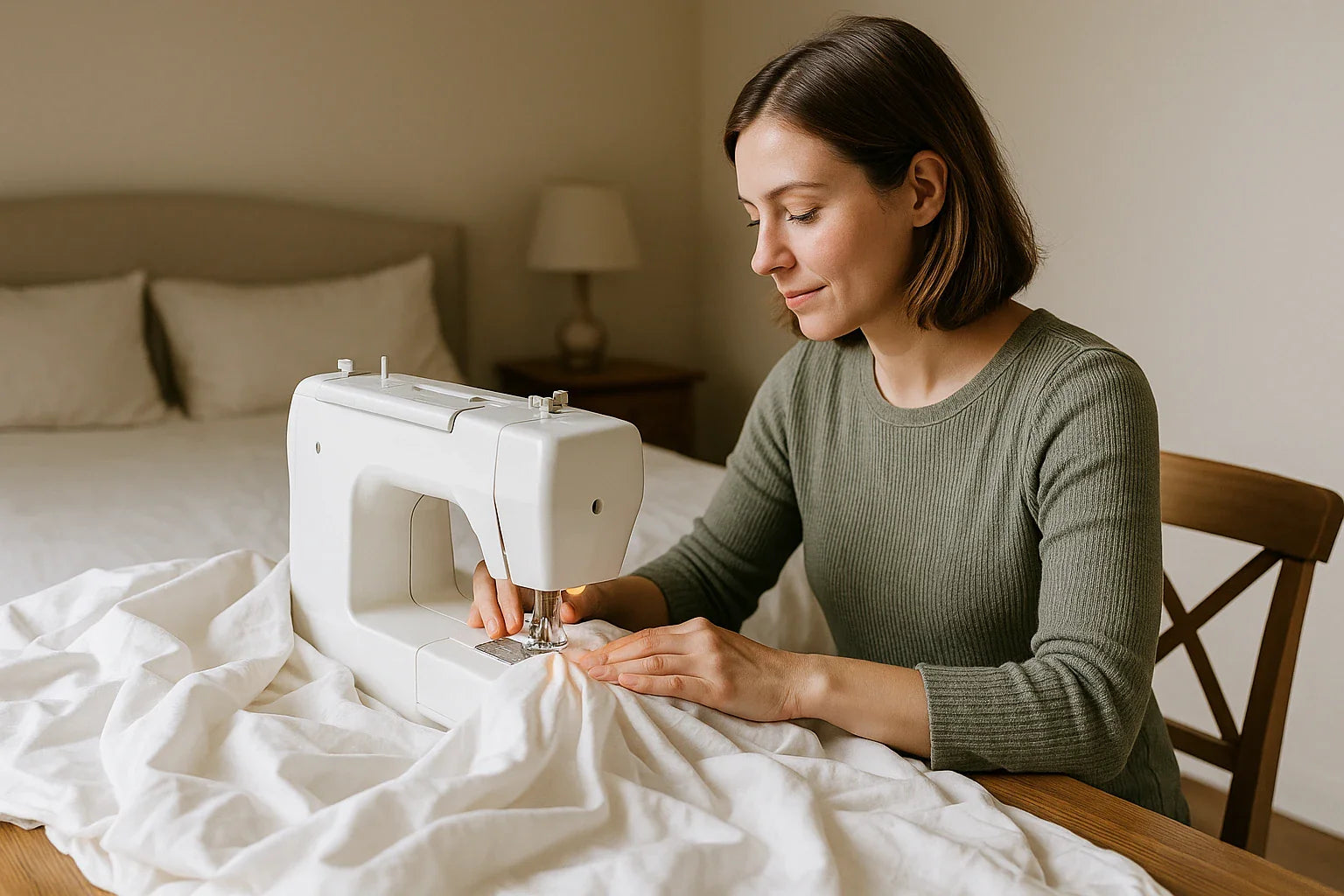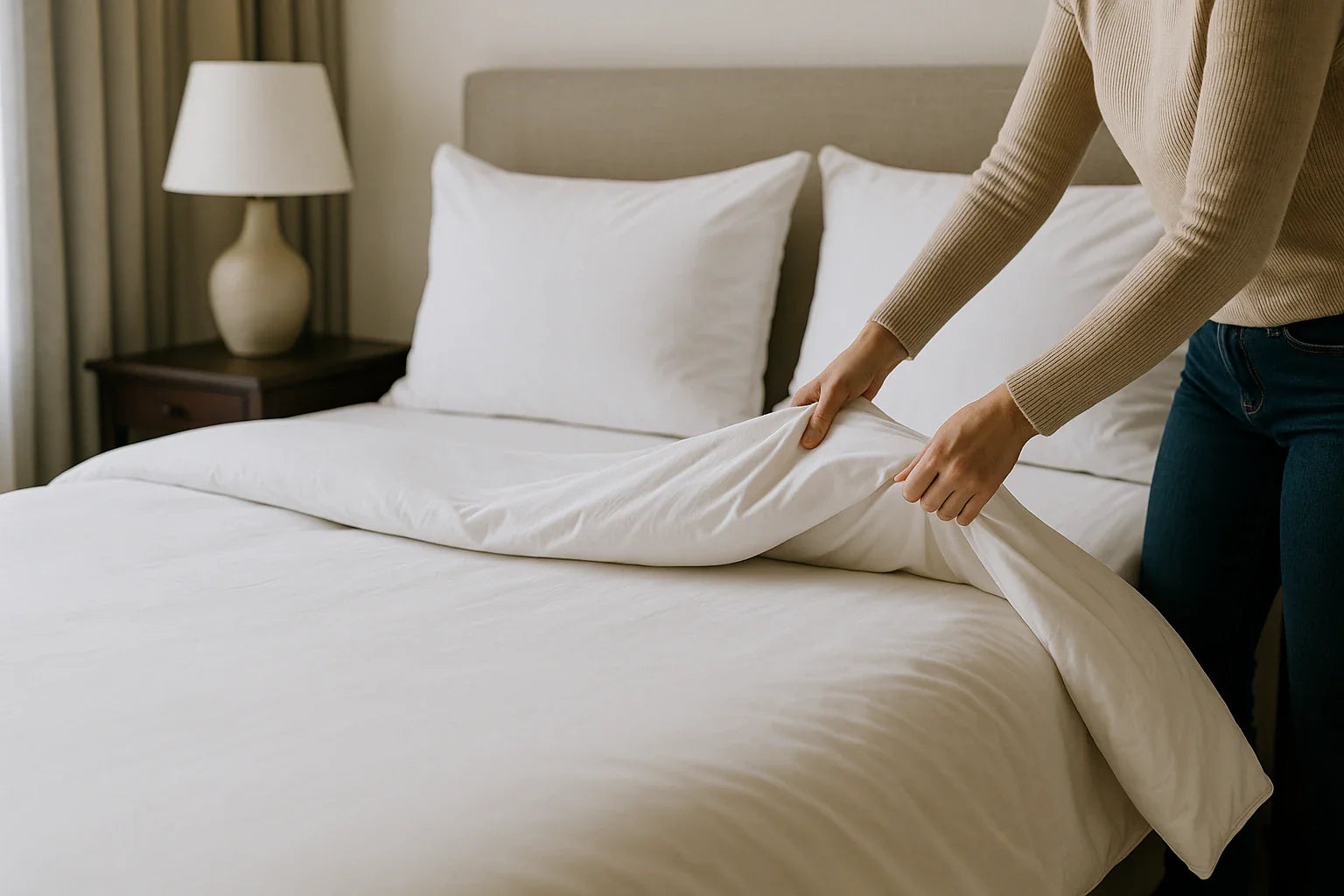Key Takeaways
- Material Selection - Choose high-quality alternative down fill and durable fabric for optimal results
- Proper Measurements - Calculate exact dimensions for professional-looking results
- Baffle Box Construction - Create even fill distribution for consistent warmth
- Quality Finishing - Ensure durability with proper sealing and edge finishing
- Cost-Effective Solution - Save money while creating a custom comfort level
Creating your own down alternative comforter offers a perfect blend of customization and cost-effectiveness.
This comprehensive guide will walk you through the entire process, from selecting materials to adding the final touches, ensuring you craft a comforter that rivals store-bought options.
How to Build Down Alternative Comforter
The process of creating your own down alternative comforter requires careful planning and execution. Before diving into the construction, gather all necessary materials and tools to ensure a smooth crafting experience.
1. Required Materials
- Outer Fabric: Choose washable cotton or microfiber fabric with a minimum thread count of 300 for durability and comfort
- Alternative Down Fill: Select hypoallergenic polyester cluster fiber fill designed specifically for bedding
- Thread: Use strong polyester thread suitable for quilting and heavy-duty sewing
- Sewing Tools: Gather scissors, measuring tape, pins, and a sewing machine with quilting capabilities
- Grid Template: Create or purchase a baffle box template for even fill distribution
2. Preparing Your Materials
Start by washing and pressing your chosen fabric to prevent future shrinkage. Calculate the finished dimensions, adding 2 inches for seam allowances on all sides. For a queen-size comforter, prepare two pieces measuring 90 x 90 inches each.
3. Creating the Shell
Begin by laying out your fabric pieces with right sides together. Pin the edges, leaving a 24-inch opening on one side for filling. Sew around the perimeter using a 1/2-inch seam allowance, reinforcing corners with double stitching.
4. Building the Baffle Box System
The baffle box construction is the foundation of your DIY down alternative comforter’s durability and comfort. Here’s how to create a professional-grade baffle system:
- Mark Grid Lines: Create a 12-inch grid pattern using fabric markers and rulers, double-check diagonal measurements for square alignment, then sew vertical lines first using a walking foot attachment with 1/4-inch seam allowance, followed by horizontal lines, ensuring reinforced intersections and squared corners.
- Create Channels: Begin sewing vertical lines using a walking foot attachment with 1/4-inch seam allowance, followed by horizontal lines. Reinforce all intersections and ensure squared corners with double stitching at stress points.
- Test Box Security: Inspect all intersection points, test seam strength, examine corners where multiple seams meet, and repair any weak spots or skipped stitches before proceeding with the filling process.
- Fill Systematically: Develop a diagonal filling pattern starting from one corner, maintain consistent measurements throughout, and track progress using a simple marking system to ensure no boxes are missed during construction.
5. Filling and Finishing
Achieve professional results through careful attention to fill distribution and proper closure techniques:
- Measure Fill Weight: Calculate total fill based on desired warmth, divide by box count accounting for extra in corners, and use precise measurements via digital scale to ensure consistency across all sections.
- Fill Gradually: Begin at the furthest corner from the opening, use a fill tube for precise placement, compress gently while shaking for even distribution, and work systematically in rows to maintain organization.
- Check Distribution: Check fill consistency using light test and touch test methods, compare adjacent boxes for uniform thickness, and address any distribution issues immediately before moving to the next section.
- Seal Carefully: Complete the project by trimming excess fabric, creating a double-turned edge, securing with ladder stitching for invisibility, and reinforcing stress points with double stitching for long-term durability.
Just like the Puffy Cloud Mattress offers perfect temperature regulation through its specialized layers, your DIY comforter can achieve optimal warmth distribution through careful construction techniques.
Care and Maintenance
Proper maintenance of your DIY down alternative comforter is crucial for ensuring its longevity and maintaining its comfort level. Here’s a comprehensive guide to caring for your handmade bedding:
-
Daily and Weekly Care: Shake your comforter vigorously each morning using diagonal corners, air it for 20 minutes while making your bed, protect with a duvet cover, and rotate end-to-end monthly to prevent uneven wear and maintain consistent loft distribution.
-
Spot Cleaning Protocol: Address spills immediately using a clean white cloth and mild detergent, blot gently from edges toward center, test cleaning solutions on hidden areas first, and ensure complete air drying before use.
-
Professional Maintenance: Schedule annual professional cleaning with an experienced cleaner who understands down alternative bedding, informing them of its handmade nature to ensure proper handling that maintains fill distribution and baffle box integrity.
-
Storage Solutions: Clean and dry thoroughly before storing, use breathable cotton or canvas bags rather than plastic, choose a cool and dry location away from sunlight, and store either flat or loosely folded to prevent permanent creasing while maintaining loft.
-
Emergency Care Kit: Maintain a basic repair kit with matching thread, fabric patches, essential sewing supplies, and small amounts of fill material for quick fixes and minor repairs when needed.
Customizing Your Comforter Design
One advantage of DIY comforters is the ability to customize various aspects:
- Size Modification - Adjust dimensions to perfectly fit your bed size
- Warmth Level - Control the amount of fill for your ideal comfort
- Pattern Creation - Design unique baffle patterns for both function and style
- Border Details - Add decorative borders or piping for a professional finish
Similar to how the Puffy Lux Mattress provides consistent support through its hybrid design, your DIY comforter’s carefully planned box construction ensures reliable comfort throughout.
Conclusion
Creating your own down alternative comforter is a rewarding project that yields professional results when following these detailed steps.
With careful attention to material selection, construction techniques, and proper finishing, you’ll create a comfortable, durable piece that perfectly suits your needs while saving money in the process.
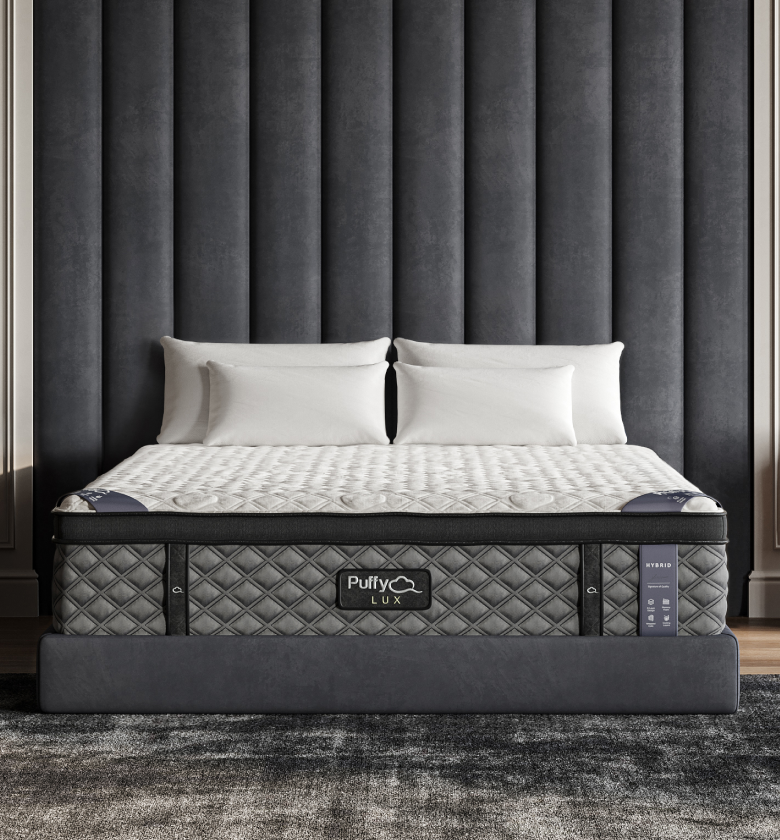
$1,350 in savings
Transform your comfort with the Puffy Lux.
Relax into award-winning comfort with this hybrid mattress:
- 8 layers of cloudlike luxury.
- Medium-plush feel.
- Gel-infused cooling.
- 101-night sleep trial.
